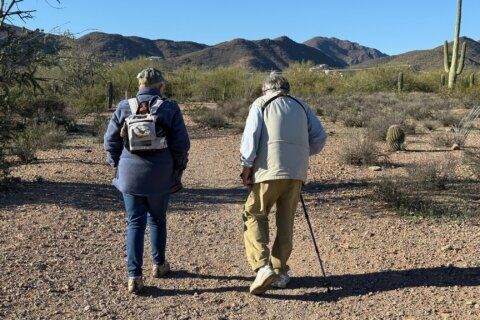WASHINGTON — It’s hard to imagine that a leaky faucet could be the answer to anything, but letting faucets drip can help prevent them from freezing and bursting in extreme cold.
Spigots serving lawns and gardens are particularly vulnerable.
“Shut your outdoor spigots off or cover them,” says Larry Gray, the owner of Village Hardware on Fort Hunt Road outside of Alexandria, Virginia.
If it’s difficult to access a water valve to shut it off, Gray recommends letting the faucet drip just a little bit.
“If you don’t, it’ll freeze and break and then you’ve got a big mess,” says Gray. Garden hoses should be disconnected from exterior faucets — preferably before temperatures fall below freezing.
Pipes running through poorly-insulated crawl spaces under homes or in exterior walls of lightly-insulated or unheated areas such as garages may be well served by letting faucets drip.
Heat tape also can be wrapped around pipes that might be vulnerable to extreme cold.
“They’re all thermostatically controlled, so it [the tape] only comes on when reaching a certain temperature,” says Gray.
Bathroom vanities can trap cold air.
“Open the doors, put a little heater in front of it. It doesn’t have to be turned on high — just enough to keep heat circulating in there,” Gray recommends.
Spouses who argue about where to set a home’s thermostat might find ammunition in pipe protection recommendations from the American Red Cross.
Even though it might hurt heating bills not to lower a home’s thermostat at night, repairs can be even more costly if pipes freeze and burst.
Follow @WTOP on Twitter and on Facebook.







